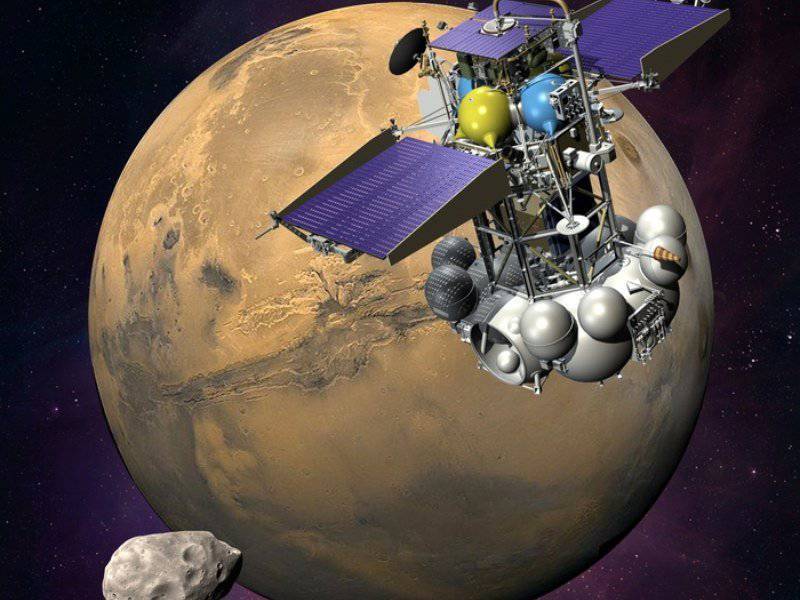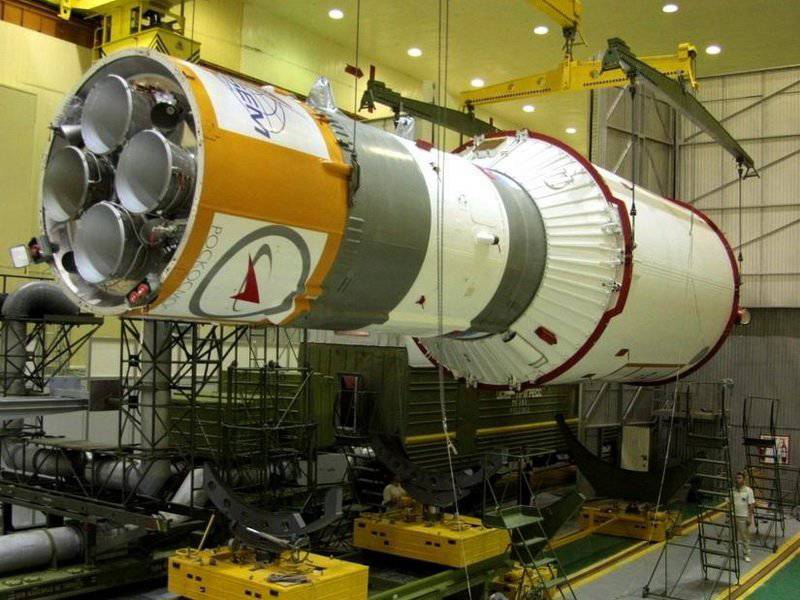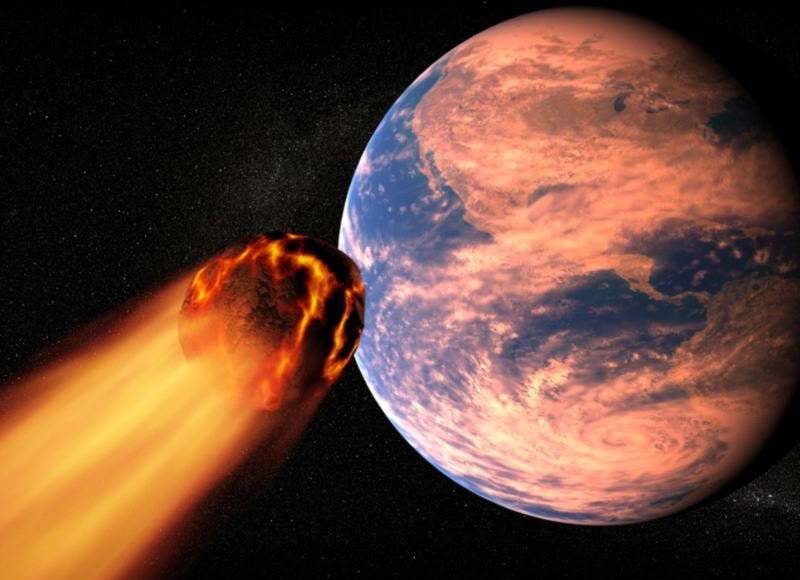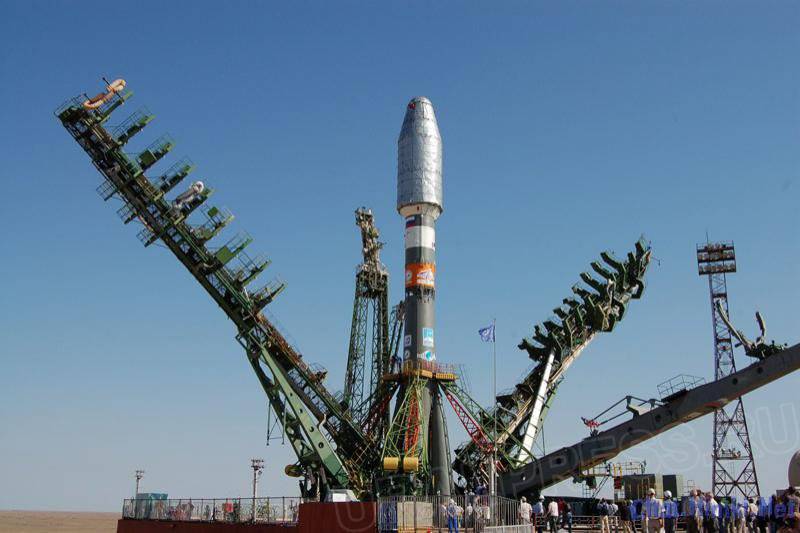Russia does not refuse space exploration
Of the recent accidents, it is possible to separately single out only a catastrophe with the Phobos-Grunt space station - indeed a serious failure not only for the Russian, but also for the international space program. The device "Phobos-grunt" was supposed for the first time in stories deliver soil samples to the Earth from the satellite of Mars Phobos. The information obtained would allow scientists to get an idea of the origin of the Martian satellites, the structural and physicochemical characteristics of Phobos, as well as the interaction of the small bodies of the Solar System with the solar wind. Instead, the Phobos-Grunt automatic interplanetary station 15 January 2012 of the year burned down in dense layers of the Earth’s atmosphere. 9 November 2011 of the year after the launch of the station due to a malfunction of the main engines, she was not able to leave the earth orbit.
All other accidents associated with satellite launches, although unpleasant, are not so resonant. The launch of satellites into space is not a trip to the store for bread, the likelihood that the launch will end in failure even in the 21st century remains quite large. If you look at the percentage of failed launches to successful ones, you will notice that Russia does not go beyond the general international framework. According to Dmitry Rogozin, today Roscosmos has a certain number of problems, but active work is already under way to eliminate them.

According to the vice-premier in the Russian space industry, manual control has practically been introduced, which is planned to be abandoned only when the new system is finally built. Dmitry Rogozin also said that he meets with Vladimir Popovkin several times a week. It is noteworthy that even last year after the fall of the Meridian satellite, Popovkin stated that the space industry is in crisis, and the most painful link for today is the engine-building area.
10 September 2012 at a special government meeting chaired by Dmitry Rogozin, Vladimir Popovkin, was supposed to present an industry restructuring plan. This plan, among other things, involves the allocation of Roscosmos to the state corporation. The main goal of the new plan is a clear division of powers between the departments of the Federal Space Agency and various enterprises in the industry.
Space exploration plans
Already in 2013, Russia plans to launch a number of spacecraft that will help earthlings better understand the cosmos and the place of man in it. According to the report of the Central Scientific Research Institute of Mechanical Engineering (FGUP TsNIIMash), which was presented at the 7 International Aerospace Congress-2012, in 2013 it is planned to launch the Bion-M and Spektr-RG apparatuses.
Biological satellite "Bion-M" will take part in a variety of physical and biological research. In particular, the features of molecular physiological mechanisms of adaptation to weightlessness will be studied, the effect of flight factors in near-earth orbits on biological objects, including mammals (rodents), as well as protein crystals will be grown on board Biona-M. The report TsNIImash reported participation in these experiments of European and American scientists. In turn, the astrophysical space complex “Spectr-RG”, which is an X-ray laboratory, will help scientists better study supermassive black holes and large-scale structures of the Universe, as well as clusters of galaxies and the nuclei of active galaxies.

On 2016, the Roskosmos scheduled the launch of the Spektr-UF spacecraft. This unit, which is a space observatory in the ultraviolet spectrum, will work in space for about 5 years. Apart from Russia, the participants of this project will be Germany, Spain and Ukraine. In 2018, the start of the Intergelio-Zond mission will be given, the task of which will be to study the Sun and the solar wind during the flight to the star. Currently, the option of coordinating the national mission with the program “Life with a star” (NASA) is being considered.
In addition, Roscosmos plans to conduct a series of launches of spacecraft to the planets of the solar system. Mars-NET to Mars in 2021, Venus-D to Venus in 2022, Venus-D to Venus in 2026, Mercury-P to Asteroid, and to asteroid Apophis to 2020. It is planned that the mission "Apophis" starts in XNUMX year. The purpose of this mission is to clarify the parameters and characteristics of the orbit of this asteroid. This mission will allow remotely, and, possibly, contact to investigate the surface of the asteroid, as well as to test in practice the effectiveness of the “gravitational tractor” method - deviations of the Apophis asteroid from an orbit dangerous for the Earth.
This asteroid was discovered in 2004 year. In 2029, this celestial object will pass dangerously close to our planet at a distance of only 38 thousands of kilometers. The danger is that, under the influence of the earth's gravitational field, its orbit may change. Earlier, scientists predicted that this 300-meter asteroid in 2026 could collide with our planet. However, most likely, the Earth and Apophis will simply disperse and the asteroid will continue its further flight. According to Viktor Shor, a researcher at the Institute of Astronomy of the Russian Academy of Sciences, the probability of a collision of Apophis with the Earth in 2036 is vanishingly small.

Russia will search for life on the satellite of Jupiter
In addition, in the XXI century, 20, Russia plans to send a landing gear to Jupiter’s satellite Ganymede in order to try to find signs of life on it. According to the presentation of the Central Research Institute of Machinery, demonstrated in the framework of the International Aerospace Salon, this project is being developed within the framework of the concept “Strategies for the development of space activities in Russia up to 2030 of the year and for the future”. The main objective of this project is a comprehensive study of the Jupiter system, as a characteristic representative of the planets - the gas giants. It is also planned to explore the satellite of Jupiter Ganymede, including on the subject of its potential habitability.
The project is expected to involve the European Space Agency, which in 2022 is preparing to send its own orbiter to Ganymede. In this case, the Russian landing module will have to go to Ganymede in 2023 year. The apparatus can achieve its goal only through 7 years of flight. Ganymede is the largest satellite in our solar system and the seventh satellite of Jupiter. This satellite consists of water ice and silicate rocks in equal quantities and is a fully differentiated body having a liquid core rich in iron.
According to the research of scientists, the underground ocean on Ganymede is located between the layers of ice below the surface, going inland by about 200 km. Among other things, Ganymede is the only satellite in the solar system that has its own magnetosphere, and the satellite also has a very thin oxygen atmosphere.
The project to send a spacecraft to the satellite of Jupiter is included in the "Strategy for the development of space activities in Russia up to 2030 of the year and for the future". According to this document before the 2030 year, it is planned to fly around the moon and disembark Russian cosmonauts on the surface of the satellite of our planet. In total, this project involves the 3 stage of development of the national astronautics.

At the first stage, which is calculated up to 2015, it is planned to develop the first stage for the new Vostochny cosmodrome, as well as to ensure readiness for launching automatic spacecraft from the territory of the new cosmodrome. To work out and create a scientific and technical foundation for the implementation of further large-scale projects aimed at the study and exploration of deep space.
The second phase of the space program must be implemented by 2020. Prior to this deadline, it is planned to create all the necessary conditions for Russia's independent access to space from its own territory. Perform all work on the completion of the operation of the ISS and carry out the necessary measures for the descent of the International Space Station from orbit. Roscosmos plans for this period to launch research stations to Venus, Mars, Jupiter, and some asteroids.
At the third stage, which will be implemented by 2030 year, it is planned to develop a space rocket complex of the super heavy class, as well as means for contact research and subsequent exploration of the moon. To conduct a demonstration manned flight around the moon and to land astronauts on its surface, with their subsequent return to Earth.
Information sources:
-http: //vpk.name/news/74527_rossiya_razrabatyivaet_proektyi_po_izucheniyu_solnca_kosmicheskih_tel_i_vselennoi.html
-http: //www.newsru.com/russia/30aug2012/jupiter.html
-http: //kosmo-mir.ru/kosmicheskie_programmy/rossii.htm
-http: //lenta.ru/news/2012/09/07/rogozin/
Information